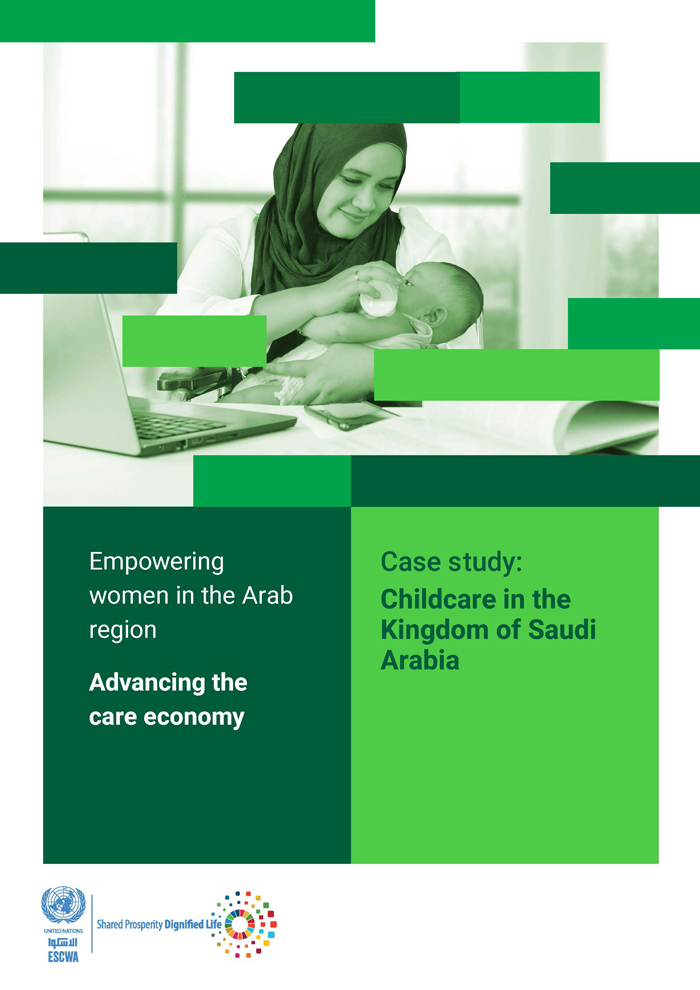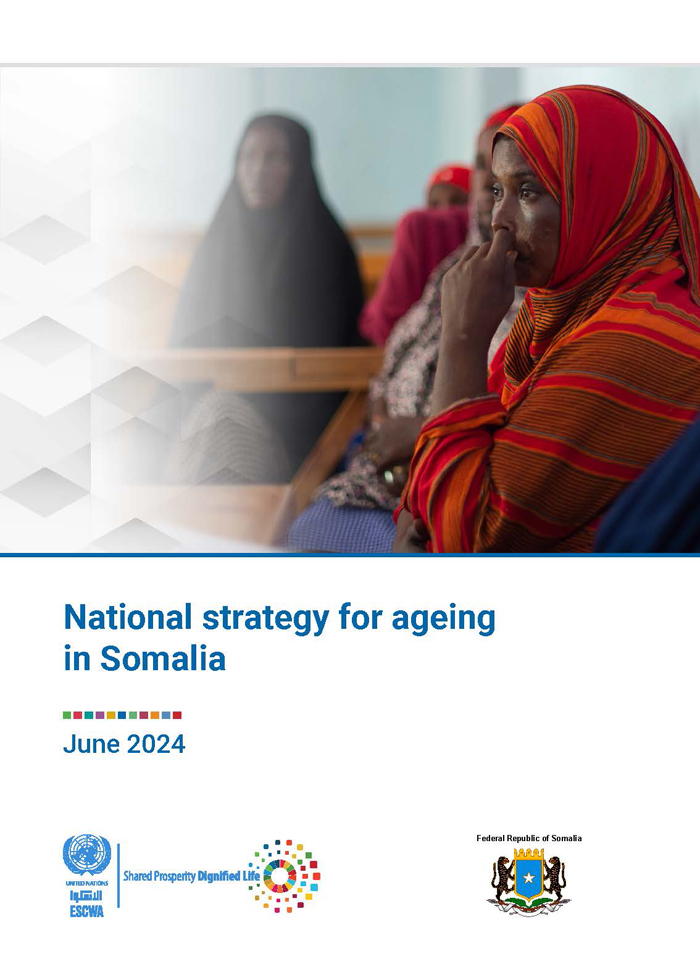
ESCWA Publication: E/ESCWA/CL2.GPID/2022/TP.12
Country: Kingdom of Saudi Arabia
Publication Type: Information material
Cluster: Gender Justice, Population and Inclusive Development
Focus Area: Gender equality, Inclusive development
Initiatives: Reforming social protection systems, Women’s rights and gender mainstreaming, Women’s economic empowerment
SDGs: Agenda 2030
Keywords: Empowerment, Women, Child care, Employment, Technical cooperation, Flexible hours of work, Women's employment, Women workers
Case study: childcare in the Kingdom of Saudi Arabia
August 2022
For long, female employment remained primarily concentrated in public education followed by health, it soon became apparent that the saturated public education sector is unable to provide employment for the increasing numbers of female graduates seeking jobs, leading to a steep increase in female unemployment. Persistently high female unemployment rates thus called for addressing both regulatory and cultural challenges boldly; a task undertaken admirably by the large-scale reform programme envisaged by the Saudi Vision 2030.
This study focuses on the economic participation of women and the measures taken to address it, with emphasis on the child hospitality sector that emerged in response to the need for childcare while women are at work. It seeks to develop an in-depth understanding of: characteristics of the childcare economy in the country, its major stakeholders, changes over the last decade and during the COVID-19 pandemic, needs and expectations of families, and the broader policy environment framing public and private provision of care.
Related content
Gender equality
, Inclusive development
,
For long, female employment remained primarily concentrated in public education followed by health, it soon became apparent that the saturated public education sector is unable to provide employment for the increasing numbers of female graduates seeking jobs, leading to a steep increase in female unemployment. Persistently high female unemployment rates thus called for addressing both regulatory and cultural challenges boldly; a task undertaken admirably by the large-scale reform programme envisaged by the Saudi Vision 2030.
This study focuses on the economic participation of women and the measures taken to address it, with emphasis on the child hospitality sector that emerged in response to the need for childcare while women are at work. It seeks to develop an in-depth understanding of: characteristics of the childcare economy in the country, its major stakeholders, changes over the last decade and during the COVID-19 pandemic, needs and expectations of families, and the broader policy environment framing public and private provision of care.



